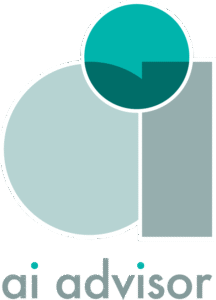https://theworldfinancialforum.com/participate/

IMPORTANT MEDICAL DISCLAIMER
This article provides general information about Medical AI Advisors for educational purposes only. It is NOT a substitute for professional medical advice, diagnosis, or treatment.
For Medical Emergencies: If you or someone else is experiencing a life-threatening medical emergency, call 911 (or your local emergency number) immediately.
For Medical Conditions: Always contact your licensed healthcare provider if you have a medical concern or symptoms.
AI is a Tool, Not a Doctor: Medical AI Advisors assist healthcare professionals—they do not replace them. Any AI-generated insight must be reviewed by a qualified clinician.
Never Delay Care: Do not delay or disregard professional medical advice because of information you read here or receive from an AI tool.
Accuracy & Limitations: Medical AI relies on data that may have limitations or biases. Always confirm critical health information with your healthcare provider.
My Story: From Diagnosis to AI-Assisted Understanding
A few years ago, I was diagnosed with prostate cancer. Fortunately, it was caught early. I underwent treatment and, today, I’m deeply grateful to say I am cancer-free.
In early 2024, during my annual check-up, I decided to try something new. I gathered my past diagnoses, lab reports, and treatment history, and fed them into ChatGPT—specifically one of the advanced GPT models available at the time.
What came back was eye-opening: a clear, structured explanation of my medical history, the drugs I had been prescribed, and the treatment paths available for my condition. When I sat down with my doctor later that week, I was far more prepared. I could ask better questions, understand my medications in detail, and actively participate in decisions about my care.
But I want to be clear—AI did not replace my doctor. My physician’s expertise, guidance, and the emotional reassurance I received throughout my cancer journey were irreplaceable. While AI gave me clarity and confidence, the best care and treatment still come from human doctors, who bring not just skill, but empathy, compassion, and emotional support—things no algorithm can replicate.
What is a Medical AI Advisor?
A Medical AI Advisor is an advanced AI-powered system—combining machine learning (ML), natural language processing (NLP), and clinical reasoning—to assist healthcare professionals in:
Analyzing Complex Data – From EHRs, medical imaging, lab results, and genetic profiles.
Providing Evidence-Based Insights – Summarizing the latest research and guidelines for a patient’s unique case.
Generating Hypotheses & Suggestions – Offering possible diagnoses, predicting disease risks, and recommending treatment options.
Enhancing Decision Support – Acting as a second set of eyes for critical or time-sensitive decisions.
Where Does Your Medical Data Go? Privacy, Protection, and Bias Prevention
Whenever you give your health information to AI, you should ask: “How protected is my data, and where does it go?”
Data Privacy: Any medical AI platform should comply with HIPAA in the U.S. and GDPR in Europe. That means encryption, secure storage, and no sharing without your consent.
Local vs. Cloud Processing: Some tools work entirely on your device, keeping your data private. Others process data on secure servers, encrypting it during transmission and storage.
Data Retention: The safest systems store data for the shortest time possible—or delete it after processing.
Anonymization: Personal identifiers like your name or address should be removed before AI analysis.
Bias Prevention: To avoid skewed or unsafe recommendations, AI must be trained on diverse, representative datasets and undergo regular bias audits.
When I used ChatGPT for my case, I reviewed the privacy policy to understand exactly how my information would be handled. I recommend every patient do the same before sharing sensitive medical history with any AI system.
The ChatGPT-5 Advantage in Healthcare
With the arrival of ChatGPT-5, Medical AI Advisors have become more capable than ever:
Deeper Comprehension – Understanding nuanced medical notes, patient histories, and research findings with greater accuracy.
Conversational Precision – Answering complex clinical questions in clear, evidence-backed language.
Multimodal Analysis – Integrating text, imaging reports, and structured data in one analysis.
Rapid Research Summaries – Processing thousands of medical papers daily to highlight what’s most relevant.
Explainable AI – Showing the reasoning process behind recommendations to build trust with both doctors and patients.
Key Applications of Medical AI Advisors
Clinical Diagnosis & Triage – Speeding up accurate diagnosis in emergency and routine settings.
Personalized Treatment Planning – Tailoring therapies to a patient’s genetics, lifestyle, and co-morbidities.
Drug Discovery – Accelerating the identification of promising treatments.
Medical Imaging – Detecting subtle early signs of disease in radiology and pathology scans.
Predictive Analytics – Identifying high-risk patients before a crisis occurs.
Administrative Efficiency – Automating paperwork so doctors can spend more time with patients.
Why Doctors Will Always Be the Center of Care
AI can process enormous volumes of information in seconds—but healing is more than data. The reassurance you feel when a doctor says, “We’ve got this,” or the human touch during a difficult moment cannot be replaced.
AI is an assistant, not a replacement. The future of healthcare lies in the partnership between skilled medical professionals and intelligent AI systems. One brings the warmth and judgment of human experience; the other, the speed and breadth of machine intelligence.
For me, AI was a tool for empowerment—it helped me walk into my doctor’s office informed, confident, and ready to participate in my own care. But my recovery, and my peace of mind, came from human expertise and compassion.
As AI technology like ChatGPT-5 continues to evolve, the potential to improve diagnostics, personalize treatments, and expand access to care will only grow. Still, we must protect patient privacy, eliminate bias, and ensure that technology augments, rather than replaces, the human side of medicine.
That combination—human heart plus machine intelligence—is where the true future of medicine lies.
